Talking with Glenn Ivers (Liberia)
An interview with Glenn H. Ivers (Liberia 1974-76),
author of ANGELS OF BASTOGNE
Glenn, what is Angels of Bastogne about?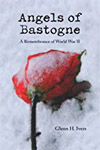
This is a story from World War II. The main characters are Jack Prior, a U.S. Army doctor, and two heroic Belgian nurses who volunteered to serve in his aid station in Bastogne, Belgium in December 1944, during a German offensive, the “Battle of the Bulge.” The aid station was short-staffed, under-equipped, and unsuitable for the tidal wave of wounded they faced, yet with grit and great compassion they persevered.
What is the genre of the book?
It has been described as historical fiction by a prominent Upstate New York historian, who generally “avoids books of this type,” but who nonetheless claimed he could not put the book down once he started reading it. I think of it as narrative nonfiction because it is a true story with an accurate timeline, and with many real-life people among the American soldiers and Belgian civilians caught up in the siege of Bastogne. The catch is that since so little of the dialogue among them was documented, I had to imagine what they said to each other based on my research, knowledge of their characters and the situations they faced.
Did you know Jack Prior, the American Army doctor?
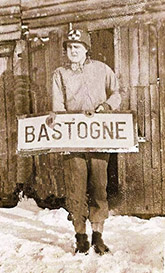
Dr. Jack Prior
Yes. He served on the board of directors of the American Lung Association of Central New York while I was its executive director from 1998–2005. We shared a car ride to Albany in 2002, and while talking about this and that, I expressed my renewed interest in books about World War II. He shared his World War II story. It absolutely floored me.
I offered to make a documentary film during a trip to Bastogne about his wartime experiences. Once he screened and enjoyed three films that I had produced in the 1990s, he agreed.
So did you ever make the documentary?
With work and homelife, and juggling soccer practices and games for three active boys taking up all of my time and energy, the years passed quickly. Dr. Prior’s health declined during that time, and he passed away in 2007 before we could get the project off the ground. I then scrapped the idea, but returned to it in 2012.
What happened in 2012?
I found that the characters of Dr. Prior and the nurses, Renee Lemaire and Augusta Chiwy stayed with me, to the point where I felt I was neglecting old friends. While a documentary no longer made sense, it occurred to me that I could write a screenplay.
I researched and learned the formats and techniques and created a screenplay with enough content for a mini-series. I found that I could bring to life the scenes, the sounds and even the smells of the battlefield, and an aid station with wall-to-wall wounded. I even created a soundtrack of songs by the artists who would have been heard on the radio in December 1944.
My wife Laura and I travelled to Bastogne in late 2014, where we retraced Dr. Prior’s steps to Noville, where he had his baptism of fire; to the site where his aid station once stood in Bastogne; to Le Nut’s pub where Jack and other veterans gathered at their 50-year reunion; and to the Mardasson Monument that commemorates all of the Americans killed, wounded or missing in action in the Battle of the Bulge.
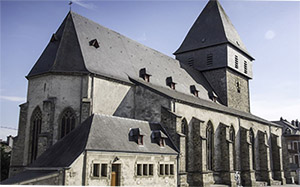
St. Pierre
Had I not visited Bastogne, I never would have learned that the bells of St. Pierre ring the first six notes of the Star-Spangled Banner.
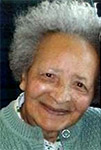
Augusta Chiwy, phot0 2011
Wind was added to my sails when I was encouraged to continue the work by Jack Prior’s nephew and daughter, both Syracuse-area residents, as am I. Jack’s daughter, Anne Stringer, even secured the blessing for my project from one of the two nurses, Augusta Chiwy, for my effort when she visited Belgium in 2015.
It took five years to complete the screenplay, but it all came to naught. Without the resources or connections needed to bring it to the big or even the small screen, I set aside the project again.
That must have been discouraging.
It was, but then I realized that after all that effort I could end up with nothing in my hands, and set about converting the screenplay to the book it is today. A quirk of the transfer is that I was able to continued the music in the story, since it was such a big part of peoples’ lives in those days.
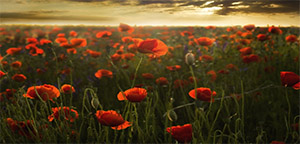
Flanders Field
Another trip to Europe during the summer of 2016 added a totally different dimension to the story when I beheld the proliferation of red poppies across the landscape. The flowers of remembrance brought to mind In Flanders Fields, the poem by John McCrae that honors the fallen in World War I. Poppies became an integral part of the story on many levels and even grace the cover of the book.
Writing can be a solitary process. Did you have support along the way?
Family members and a dozen friends critiqued multiple drafts, and one friend in particular challenged me to drill down into the psyche of the main characters. What were they thinking and feeling, beyond what they were doing? It helped me to delve into the sisterhood that Renee and Augusta must have developed as they worked together under fire during the siege of Bastogne. That friend, Gavin Landless, helped me to get the book over the finish line.
So, The Angels of Bastogne took 20 years to write. How did you manage to keep it going?
The characters wouldn’t leave me alone, especially Renee and Augusta whom I was determined to accurately represent. They would even come to me at random moments telling me what they would have said or done, leading to dozens of edits and improvements. I kept a notepad nearby at all times.
I also wanted to honor Dr. Prior and by extension my father and all the others who served in World War II and felt a kind of duty to complete the book. I grew up in the long shadow of the war, the movies, the songs, the books, like everyone else in my generation. Part of me wanted to bring the story to younger generations, so that they would know the true meaning of sacrifice.
On a completely different subject, I understand that you shared a pint with Kingsley Amis in London while you were a student there in 1973. How did you connect with the famous writer? Did he give you any advice?
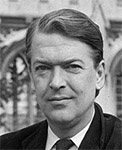
Kingsley Amis
I was in London with a Colgate University foreign study group. One of the courses was Modern British Fiction and the professor hired Kingsley Amis to come to speak to the class. After the class, a friend and I invited Mr. Amis to join us at the pub on the corner. He gladly accepted our invitation. We bought him at least one pint, and he was a terrific sport about it.
We had read Lucky Jim, his first and one of his most successful books, with unforgettable characters, and I was curious about how he developed his characters. I asked him “do you have a flash of inspiration.” He responded “no, a flash of recognition.”
I didn’t think much of it at the time, but it occurred to me when I developed my characters Will and Joey for Angels, that I had benefited from that advice. The two soldiers came alive once I “recognized” them. Kind of hard to explain, but I know my revelation about who these two soldiers were was exactly what Mr. Amis was talking about.
Thank you, Glenn for a great story about a great story.
•
Angels of Bastogne: A Remembrance of World War II
Glenn Ivers (Liberia 1974–76)
Peace Corps Writers
February, 2022
$19.95 (paperback), $9.95 (Kindle)
No comments yet.
Add your comment